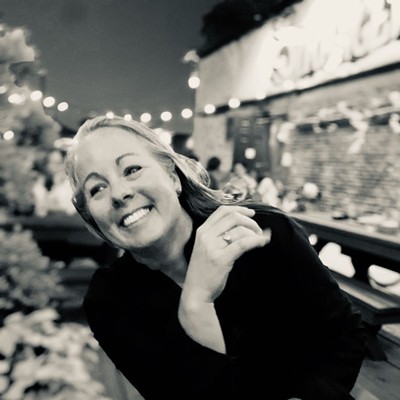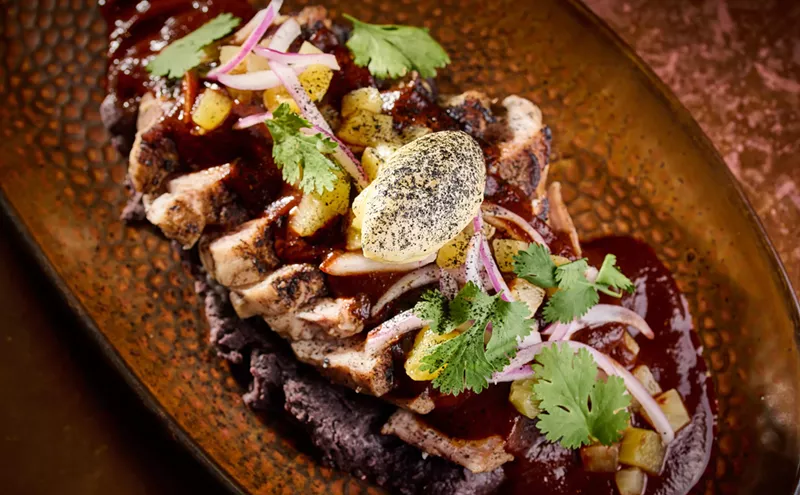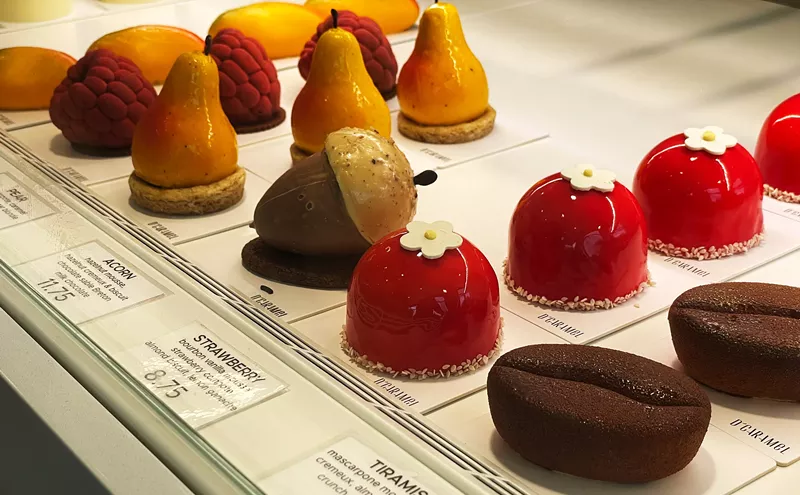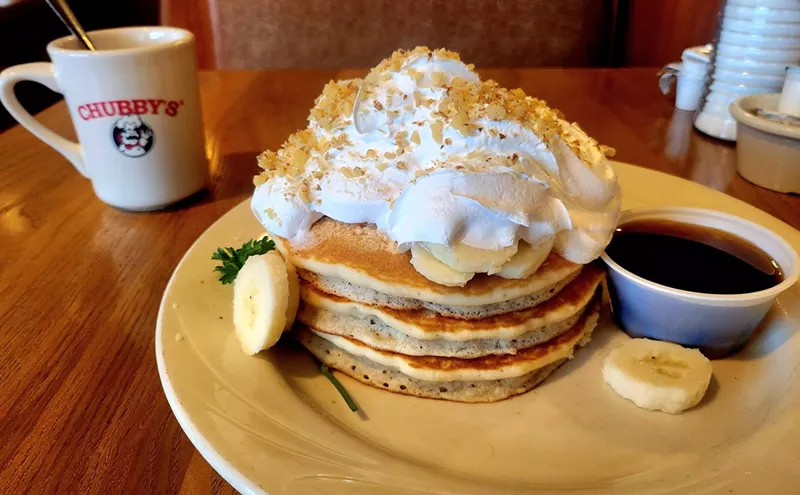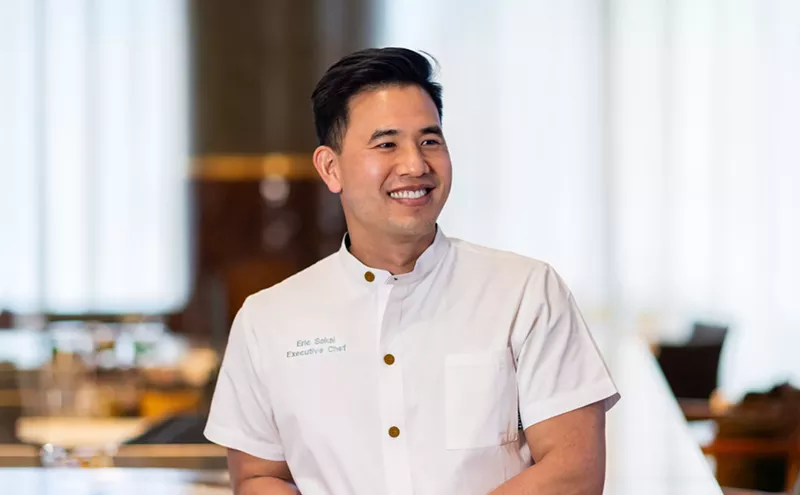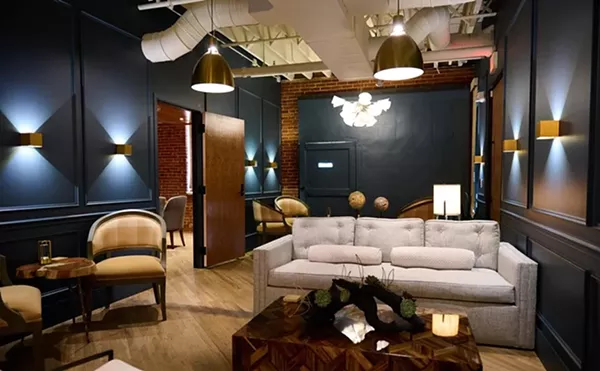Kyle Noonan and Josh Sepkowitz first met while attending SMU. After graduating they took off in different directions and career paths, Noonan with the Pappas restaurant group and Sepkowitz as a financial analyst on Wall Street. After more than a decade in their perspective careers, both decided to come back to where it all started and open a restaurant or three.
Last year the duo opened Bowl and Barrel at the Shops at Park Lane, a boutique bowling alley with a menu created by Sharon Hage of the famed York Street. Then came Mutt's Canine Cantina near the West Village -- a playground for pets along with cold drinks for their people. Next up is a TV show about neighborhood gems, then late this summer they'll open The Rustic, a mid-sized music venue and collaboration with Pat Green.
Here's our chat about their hard and fast entrance into the Dallas restaurant scene:
How did you get in the restaurant business? Noonan: I started waiting tables in college, just for beer money, but ended up being drawn to the industry. The restaurant industry is either something you're passionate about and love or it just isn't for you at all.
How's it going working together? Noonan: What makes this work is that outside of all the tangibles that make a great partnership and being great friends, fundamentally we're very wired differently. Left brain, right brain thing.
Sepkowitz: I handle a lot of the legal and finances side of things and he does a lot of the operation side of things.
You have a lot going on; bowling over at Bowl and Barrel, a dog run and bar at Mutt's and soon an outdoor music venue. Noonan: At the end of the day it's all very focused though; we're in the hospitality business. It's about people taking care of people. And we approach that in a few ways. Each one of our projects has a very unique component. We've gone from zero to 250 employees in two years. The hiring, training and development of our staff is a big focus.
Going from zero to 250 in two years is huge. A lot could be lost there. How do you get everyone on the same page? Noonan: We have to get people to buy into the message and everyone pulling in the same direction. That's key. The closer you create the organization, the easier it is. We have to make sure we've established and maintain a good culture and focus on taking care of people. All organizations stumble in certain areas, but as long as the foundation is set and we take care of every guest that walks in the door, then we'll be OK.
How do you get to people to want to work here? Noonan: The restaurant business is no different than any other industry. As an employer you have pride yourself on treating people fairly and providing opportunity for advancement and growth and supporting them if they stumble.
Sepkowitz: I think another aspect is they see us here, working. I fix bowling machines; I've picked up dog messes. We'll do anything that needs to be done. What are a few key components of managing people? Noonan: Rule number one is 'take care of those who take care of you.' Show your employees empathy, compassion and respect. Before I address any situation, I always stop and think, "How would I like my boss to handle this circumstance?"
Great talent management is also imperative. And that alone has three components.
What are they? Noonan: Recognize that advancement potential in an organization is both a reward and a benefit.
Second, show favoritism. I know favoritism is supposed to be bad, but I disagree. Productive employees with potential should command more of your time and more of the rewards. That means you need to know what is important to them.
Finally, when a promotion is rewarded, celebrate the recipient. Let your entire team know when promotions are given and how those individuals earned their promotion or reward.
Can you give us a more specific example of talent management? Noonan: A few years back I had an employee, Tommy, who was a bartender. Tommy was one of the top employees. He was a college student, and he worked part-time. He was personable and had a wide range of interests. Everyone enjoyed him and he made going to work fun. He was the glue that held the staff together.
Eventually I was transferred and a few months later, I came back and met with Danielle, the manager of that restaurant, and she tells me that she's having a tough time with her employee retention and that her staff morale is low. She casually mentions that Tommy is gone, but doesn't link this to her challenges.
Because Tommy was so good, Danielle would ask him to work extra hours and because he was nice, he never said no. But, since he was in college, he wasn't here for a permanent job and ultimately this led to his departure. Danielle wasn't very attuned to what made him tick. It was just poor talent management.
So, she drove away the glue that held the place together. How should she have handled him? Noonan: An employee like Tommy is far more critical to the overall culture of the organization than I could ever be. Even though I set the standard, it is each employees' responsibility to live, breathe, and protect the organization's culture.
But, how do you draw in someone like Tommy when it's just beer money, like it was for you? Noonan: Few people enter the restaurant industry expecting to make it a career, I certainly didn't. So, management has to focus on changing a few minds, showing that a career in the restaurant industry is a viable option. Losing people like Tommy is a very high-cost turnover. That's why great talent management is key. What have you learned about having dogs as customers? Sepkowitz: It becomes a community out there (at Mutt's). People come here two or three times a day. Noonan: Dogs are a great ice breakers. They're a conduit to people.
You're building a restaurant, bar and music venue The Rustic, which is a partnership with Pat Green. How did that come together? Noonan: We've been friends for a while. We just started talking one day and realized there aren't that many venues our size in this market. There are really small ones and really big ones, but there's no middle ground. Like most good ideas, it was born with a group of friends over some beer saying, "Wouldn't it be cool if..."
How many people will The Rustic hold for music events? Noonan: About 2,000.
And, you're also working on a TV show, Local Fare? Noonan: Yes, it was picked up by CBS.
Was this completely your idea? Noonan: Yes, again, we came up with it sitting around saying, "Wouldn't it be cool if..."
So, you pitched the idea and CBS picked it up? Noonan: Yep.
Who wrote the script and all that? Noonan: We did.
Who produced it? Noonan: We hired a company. It was an amazing learning experience.
Did you know how to make TV shows before? Noonan: No.
How did you even know where to start? Noonan: We didn't. But, we just got it all done and then we just hand them the film and they literally just pop it in and play it.
What's the concept? Noonan: The idea is very simple. Each episode features three local strangers who aren't affiliated with the restaurant industry. Each person selects their favorite restaurant and the other two try the other two places. And then they all come on the show and review them. Really it's a way to find local neighborhood gems. [The premiere is 5 p.m. September 7 on KTXA channel 21.]


